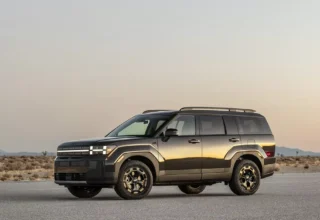
Car buying used to be pretty straightforward, even if it wasn’t always pleasant. You’d visit a few local dealers, maybe check the newspaper classifieds, ask friends and family what they drove, and make a decision based on limited information and a test drive. That was it.
Now? The whole process has been turned upside down by social media, online reviews, and endless digital research opportunities. Before most people even step foot on a dealer lot, they’ve already spent hours scrolling through Facebook groups, watching YouTube reviews, and reading comments from complete strangers about their car experiences.
This shift has created some real benefits for buyers, but it’s also introduced new problems that many people don’t see coming. Understanding both sides helps you make better use of these tools without getting trapped by them.
Table of Contents
The Research Revolution That Actually Helps
The biggest win from social media and online platforms is access to real information from actual owners. Before, you were pretty much at the mercy of whatever the salesperson told you and maybe a few magazine reviews written by professional journalists who tested cars for a week.
Now you can find Facebook groups dedicated to specific car models where owners share everything – the good, the bad, and the stuff that breaks after 80,000 miles. Someone who’s owned a particular SUV for three years will tell you exactly how it handles in summer heat, what the air conditioning is like, and whether the paint holds up to the harsh sun.
YouTube has become particularly valuable for this. Real owners make videos showing you how cargo space actually works with everyday stuff, how easy various controls are to use, and what problems crop up over time. It’s like having access to thousands of long-term test drivers.
This information helps buyers avoid nasty surprises. When enough people mention that a specific model has expensive transmission problems around 70,000 miles, that’s useful intel you can factor into your decision.
Information Overload Becomes a Real Problem
But here’s where things get tricky – there’s now too much information, and not all of it is helpful or accurate. You can spend weeks down rabbit holes reading conflicting opinions about the same car.
One forum thread will have people raving about how reliable a model is, while another group tears it apart for being unreliable. Different climates, driving habits, and maintenance practices mean the same car can perform very differently for different people.
The problem is that dramatic stories get the most attention online. Someone whose car runs perfectly for 200,000 miles rarely makes a detailed post about it, but someone whose engine died spectacularly at 50,000 miles will write a novel about the experience. This creates a distorted view where problems seem more common than they actually are.
People also tend to seek out information that confirms what they already want to believe. If someone has their heart set on a particular model, they’ll give more weight to positive reviews and dismiss negative ones as outliers or user error.
The Influence Factor Gets Complicated
Social media influencers have discovered that cars generate engagement, so now there are people making careers out of car content. Some of this is genuinely helpful – experienced mechanics explaining common problems, or long-term owners sharing honest assessments.
But there’s also a lot of content that’s either sponsored (sometimes obviously, sometimes not) or created by people who don’t really know what they’re talking about. A travel blogger reviewing cars might focus on features that look good in photos but miss practical issues that matter for daily driving.
The visual nature of social media also skews priorities. Cars that photograph well get more attention than practical choices. A bright red sports coupe will get more likes and shares than a beige family sedan, even if the sedan is objectively better for most people’s needs.
Finding Real Reviews Among the Noise
Here’s the tricky part – distinguishing between genuine reviews and everything else. Fake reviews exist, but they’re not always the biggest problem. More common are reviews from people whose priorities and situations are completely different from yours.
A retired person reviewing a luxury car might focus on comfort and quiet ride quality, while a parent of three cares more about cargo space and safety features. Both reviews can be accurate but not necessarily relevant to your situation.
For those researching options through car sales Perth or other local dealers, local Facebook groups and community forums often provide the most relevant information. People dealing with the same climate, roads, and local service networks will give you insights that match your likely experience better than generic national reviews.
The most useful reviews typically come from people who’ve owned a vehicle for at least a year and mention specific details about their usage patterns. Someone who says “great car” without elaborating tells you nothing, while someone who explains how it performs in their daily 45-minute commute with occasional weekend trips gives you actionable information.
How Dealers Adapted (Not Always for the Better)
Dealers have had to change how they operate because buyers now show up already knowing prices, features, and common problems. This has reduced some of the old high-pressure tactics because informed customers are harder to mislead.
Many dealers now focus more on service experience and building online reputations because they know bad reviews can seriously hurt their business. This has generally improved customer service standards.
But it’s also led to new problems. Some dealers have become experts at managing their online presence in ways that don’t necessarily reflect reality. They might encourage satisfied customers to leave reviews while discouraging complaints, creating artificially positive ratings.
There’s also more emphasis on online advertising and social media presence, which can make flashy dealers who spend big on marketing appear more reputable than smaller, honest operations that don’t have polished websites and active social media accounts.
The Speed Problem Nobody Talks About
Social media has also sped up the decision-making process in ways that aren’t always helpful. People see posts about great deals or limited-time offers and feel pressure to act quickly without doing proper research.
Car buying groups on Facebook often have posts like “should I buy this car?” with a photo and basic details, expecting definitive advice from strangers who can’t possibly know enough about the person’s situation to give meaningful guidance.
This instant-feedback culture can push people toward quick decisions based on incomplete information, which is the opposite of what good car buying requires. The best car purchases usually involve careful consideration of long-term needs, not snap judgments based on social media buzz.
Making Social Media Work for You
The key is using these tools strategically rather than getting overwhelmed by them. Set some boundaries on research time – maybe an hour a day for a week rather than endless scrolling.
Focus on information from people whose situations match yours. If you’re a city driver, reviews from rural owners might not apply. If you’re budget-focused, luxury car enthusiasts might have different priorities.
Look for patterns rather than individual horror stories. If multiple long-term owners mention the same problem, that’s worth considering. If only one person complains about something, it might be an isolated case or user error.
Remember that social media shows you what people choose to share, not a complete picture. The most satisfied customers often don’t bother posting reviews, while unhappy customers are more motivated to share their experiences.
Use online research to narrow down options and identify questions to ask, but don’t skip the test drive and in-person evaluation. Photos and videos can’t tell you how a car feels to drive or whether the seating position works for your body.
Social media and online reviews have definitely made car buying more complex, but they’ve also given buyers access to information that can help them make better decisions. The trick is learning to filter useful information from the noise and using these tools as part of the process rather than letting them drive every decision. The best car choices usually combine online research with real-world experience and honest assessment of your actual needs.














